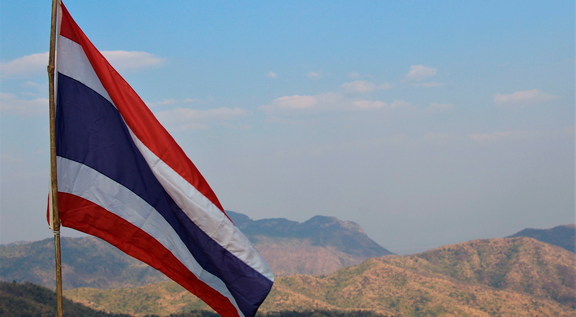
Image: Pixabay
The area of cooperation activity involves Brazilian and Thai agriculture, including animals, aquatic, vegetable, soil, water resources management and cooperatives. It also includes the development of agricultural cooperatives and farmer institutions, as well as the management and conservation of agricultural biodiversity. Other activities foreseen in the document include integrated pest management and ecological engineering. The memorandum also lists alternative energy, including process and production management.
The memorandum was signed last Wednesday (16) by the Minister of Agriculture and Cooperatives of Thailand, Chalermchai Sreeon, in the presence of the Brazilian ambassador to Bangkok, José Borges dos Santos Júnior, in Bangkok. Minister Tereza Cristina signed the memorandum on March 11th.
Forms of cooperation
Cooperation will be carried out by providing for the exchange of information, technicians and researchers; training, courses, seminars, preparation of technical assistance projects, study visits and other matters of mutual interest.
Other forms of cooperation to promote development in the field of agriculture in both countries will be through the exchange of knowledge in the field of agriculture and agribusiness, as agreed by the participants regarding knowledge exchange and technological transfer.
{module Form RD}
A Joint Agricultural Working Group (GTAC) will be formed to implement the provisions of this agreement and will meet every 2 years, alternately, in Thailand and Brazil. The Work Plan will be prepared jointly from the 1st GTAC meeting onwards.
The memorandum of understanding will remain in effect for an initial period of five years and will be extended for additional five-year periods.
Bilateral relations
Currently, Thailand is the largest importer of Brazilian agribusiness products in Southeast Asia. This represents, for Brazil, a share in Thai trade of 2,09%, and places Thailand among the five largest importers of Brazilian agribusiness products in 2021. (Data from AgroStat – 2021)
The soybean complex continues to be the Brazilian agribusiness product most exported to the Thai market. In 2021, exports of the soybean complex resulted in an amount of US$ 2,516,771,150, which represented an increase of 28% compared to the previous year. Next, leather exports stood out, which reached US$ 41,175,873, an increase of almost 23% compared to 2020.
In third place on the Brazilian export agenda comes forestry products with an increase of more than 26% compared to the previous year, totaling US$ 39,790,221. Followed by beef exports which jumped by 58% in 2021, totaling US$ 34,015,788.
An increase in the volume of exports of other Brazilian agribusiness products was also observed, such as cereals, oilseed products, cocoa, products from the sugar and alcohol complex and beverages.
Thailand stands out as an important exporter of food, in particular rice, natural rubber, chicken, sugar, processed tuna, tapioca flour and shrimp. As a member of the Association of Southeast Asian Nations (ASEAN), the country has been strengthening its commercial partnerships through free trade agreements already signed with several countries in Asia, as well as Oceania, considered strategic for the trade of their agricultural products.
In 2021, Brazil imported US$ 217,853,574 worth of Thai agribusiness products, with emphasis on natural rubber, which represented 80% of imports, followed by rice, vegetable oils and extracts, seeds and pet food.
By: Eliza Maliszewski | agrolink












